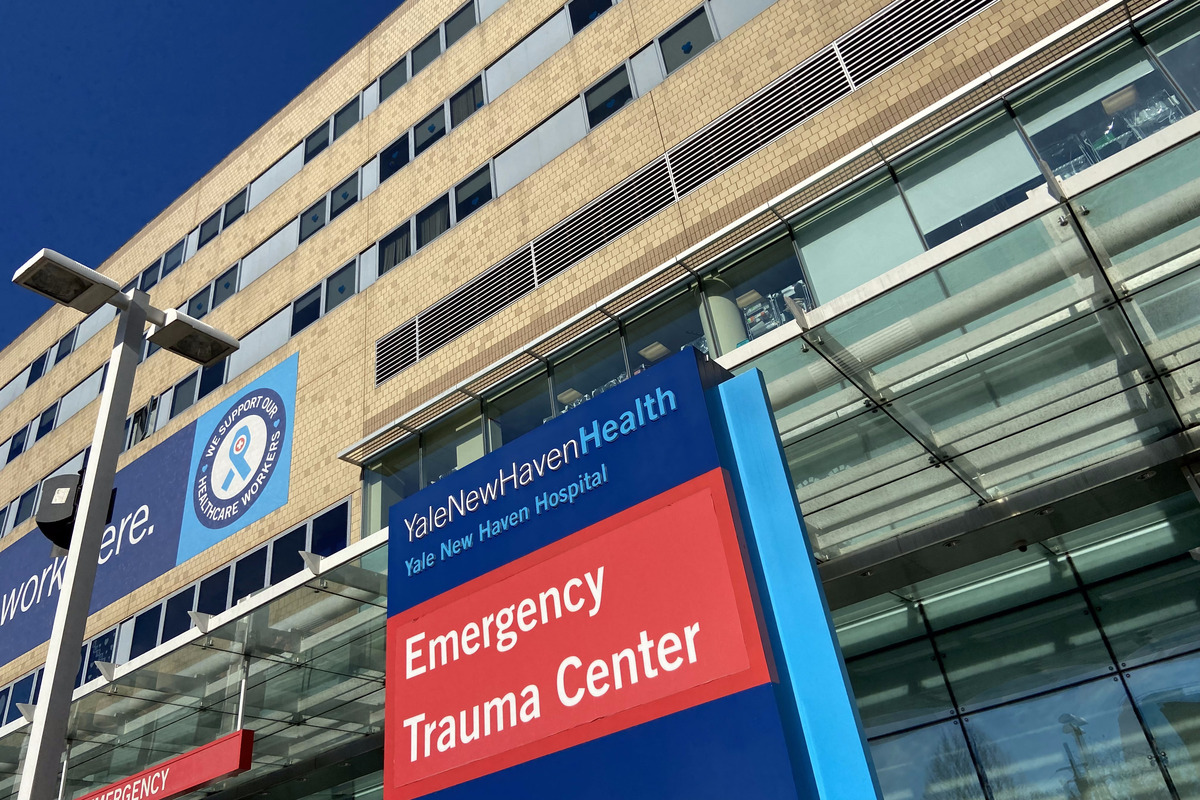Yale to add peers onto its behavioral crisis response teams
Peers who have previously experienced mental health crises will aid patients with psychiatric and emotional crises.

Zoe Berg, Senior Photographer
In September, a Yale Emergency Medicine team at the School of Medicine won $6.9 million to fund a project that will add peers onto its behavioral crisis response teams.
Peers are people who have received treatment for mental health crises in emergency departments, or EDs, and have successfully recovered. By introducing peers into EDs, the team hopes to help patients in mental health crises interact with people who have had similar experiences.
“When patients are in psychiatric crisis, there aren’t good places for us to treat them properly,” said Ambrose Wong, the lead researcher of the team and an assistant professor of emergency medicine. “A lot of them come in through the emergency department. If there’s a place where there’s a psychiatric emergency department — for example, here at Yale — they get seen by a psychiatrist. But with most places in the country, patients are not within an easy distance to a place where there are psychiatrists on call 24/7.”
Emergency departments are fast-paced environments where hospital workers must make life-and-death decisions. The team envisions that peers will only support patients who are undergoing mental health crises.
While hospitals across the country have implemented peers in various medical departments, this new project is the first time that they will be introduced into emergency departments. The peers will be trained to understand medical jargon and the ED environment to help patients navigate the healthcare system. The team emphasized that peers will also assist patients with outpatient care, not only acting as a mediator of sorts within EDs, but also showing them how to make appointments, receive medications and negotiate costs.
“I think a lot of physicians [in EDs] don’t know what the trauma even is, so they don’t even know how to be trauma-informed,” said Anthony Pavlo, a clinical psychologist on the team and an associate research scientist in psychiatry. “The peer might be able to get that story a little bit more from a patient, understand it a bit more and be able to communicate [the patient’s] certain triggers.”
The team is partnering with New Life II, a faith-based recovery organization in New Haven, and the Yale Program for Recovery and Community Health to help recruit and train peers. Both organizations previously used peers in their work.
The team received funding received for five years from the Patient-Centered Outcomes Research Institute, a nonprofit institute created through the Affordable Care Act. The first two years will be devoted to preparation work, recruitment and training, while the trial will begin in the third year, rolling out across five sites in Connecticut.
“EDs are particularly good about sharing best practices,” said Mark Sevilla, Vice President of Behavioral Health and Emergency Services at Yale New Haven Hospital. “If we can prove a changed outcome for these patients, I think it sets a really strong precedent for being able to be replicable in other departments.”
For Sevilla and the team, an improvement in patient outcomes would signify an important shift in mental healthcare. In particular, it would highlight the importance of quality mental healthcare access across different communities. .
The project seeks to make mental healthcare more accessible for patients who don’t have full insurance coverage — particularly those belonging to marginalized groups. These patients are at a greater risk of mental health crisis due to their limited access to psychiatric care in EDs.
According to the project’s website, the team plans to enroll 57,870 visits for adults with behavioral and other psychiatric issues.







